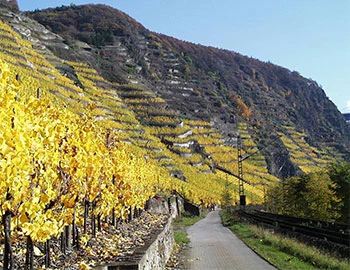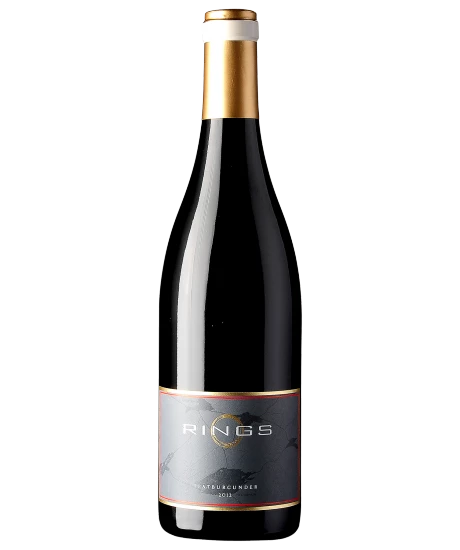Spätburgunder Gutswein 2021
QbA Pfalz, Rings, 750 ml

| Grape variety: | Spätburgunder |
| Producer: | Rings |
| Origin: | Germany / Pfalz |
| Other vintages: |
Description
Lovely ruby colour with bright, youthful hue. The nose is a basket bursting with berries: blackberries, morello cherries, raspberries, strawberries. On palate this wine is full with a delicate fleshiness. A little spice and liquorice from ageing and tannins add depth.
Attributes
| Origin: | Germany / Pfalz |
| Grape variety: | Spätburgunder |
| Label: | Vegan, Certified organic or biodynamic wine |
| Ripening potential: | 2 to 6 years |
| Drinking temperature: | 16 to 18 °C |
| Food Pairing: | Italian antipasti, Apéro riche, Roast veal with morel sauce, Crispy roast chicken, Pork fillet with plums, Risotto with ceps |
| Vinification: | fermentation in steel tank |
| Harvest: | hand-picking with simultaneous grape sel, strict selection |
| Maturation: | in steel tank, in used barriques |
| Volume: | 13.0 % |
| Note: | Contains sulphites |
Spätburgunder
Blueprint of the terroir
No other variety expresses its terroir as precisely as Pinot noir. It is a sensitive, fragile grape. But when it succeeds, it gives the world some of its very greatest wine plants. It especially excels in Burgundy, where it has been cultivated for at least 700 years. Even in the middle ages, it was considered so precious that it was kept separate from other grapes so as to not diminish its value. The finest examples are delicate and fragrant with aromas of cherries and red berries. With maturity, notes of forest floor, leather and truffles enter as well. An irresistible fruity sweetness still shines through, even after several decades. The Pinot noir does well in cool locations: in Switzerland and in Germany, where it is known as Blauburgunder and Spätburgunder respectively; in Alsace and in South Tyrol, in Oregon, New Zealand and Tasmania. Not least, it yields fantastic champagnes. It is a wonderful culinary companion. With its soft tannins and charming bouquet, it meshes with everything, from Güggeli and cheeses to fried fish.

Germany
Germany – Into the elite the hard way
Sitting in the heart of Europe, the hilly, lake-dotted landscape of Germany provides ideal, fertile soil for the most diverse vine varieties. From Albalonga to Zweigelt, over 140 different grape varieties are grown on about 100,000 acres, cared for by nearly 50,000 vintners. Most of these vintners are young, modern, internationally trained, inquisitive and urbane. It is hardly surprising, then, that German wine has a good reputation well beyond the country's borders.



